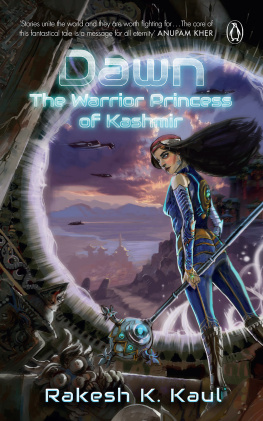A WARHAMMER TIME OF LEGENDS NOVEL
NAGASH IMMORTAL
The undead will rise
Nagash - 03
Mike Lee
(An Undead Scan v1.0)
It is a Time of Legends, a time of gods and daemons, of kingsand heroes blessed with the power of the divine.
The arid land of Nehekhara has been blessed by the hands of the gods, giving birth to the first great human civilisation by the banks of the winding River Vitae. The Nehekharans dwell in eight proud city-states, each with its own patron deity whose blessings shape the character and fortunes of its people. The greatest of them all, situated at the nexus of this ancient land, is Khemri, the fabled Living City of Settra the Magnificent.
It was Settra, hundreds of years before, who united the cities of Nehekhara into mankinds first empire, and declared that he would rule overit forever. He commanded his priests to unlock the secret of life eternal, and when the great emperor eventually died, his body was entombed within a mighty pyramid until the day when his liche priests would summon his soul back from the afterlife.
After Settras death, his great empire unravelled, andKhemris power waned. Now, amid the haunted shadows of Khemris mortuary temple,a brilliant and mighty priest broods over the cruelties of fate and covets his brothers crown. His name is Nagash.
DRAMATIS PERSONAE
Nagashizzar
Nagash, the Undying King, first and greatest of the necromancers
Bragadh Maghurkan, Nagashs chief lieutenant, former chieftain ofthe north
Diarid, chief lieutenant to Bragadh
Thestus, another lieutenant, Bragadhs chief rival
Akatha, last of the northern witches
Beneath the Great Mountain
Eekrit Backbiter, Warlord of Clan Rikek
Hiirc, a young and callow Lord of Clan Morbus, Eekrits lieutenant
Eshreegar, Master of Treacheries
Lord Qweeqwol, grey seer
Vittrik One-Eye, Engine-master of Clan Skryre
Velsquee, Grey Lord of Clan Abbis
Shireep, skaven scout-assassin
Kritchit, a skaven slaver
Lahmia
Neferata, immortal Queen of Lahmia, the first vampire
Ankhat, formerly a wealthy and powerful noble, now a vampire
Ushoran, the Lord of Masks, now a vampire
Wsoran, a scholar and necromancer, now a vampire
Zurhas, a dissolute former noble, now a vampire
Abhorash, former Captain of the Royal Guard, now a vampire
Naaima, a former courtesan from the Silken Lands, now a vampire
Ubaid, Neferatas chief thrall, Alcadizzars personal servant
Alcadizzar, Prince of Rasetra, hostage to the Lahmian court
Upon the Golden Plain
Faisr al-Hashim, Chieftain of the bani-al-Hashim
Muktadir al-Hashim, Faisrs son
Bashir al-Rukhba, a wealthy and powerful chieftain
Suleima, bride of Khsar, the Hungry God, and Daughter of the Sands
Ophiria, Suleimas successor
Nawat ben Hazar, bandit leader
Lybaras
Ahmenefret, King of Lybaras
Rasetra
Asar, King of Rasetra
Heru, Prince of Rasetra and heir to the throne
Khenti, a powerful Rasetran lord and Alcadizzars uncle
Quatar
Nebunefre, King of Quatar, Lord of the Tombs
Ka-Sabar
Aten-sefu, King of Ka-Sabar
Khemri
Inofre, Grand Vizier and Regent of the city
Numas
Omorose, Queen of Numas
Zandri
Rakh-an-atum, King of Zandri
PROLOGUE
Mountain of Sorrows
Nagashizzar, in the 96th year of Geheb the Mighty
(-1325 Imperial Reckoning)
The mountain had many names, stretching back to the dawn of mankind.
The nomadic herders of the far northern steppes knew it as Ur-Haamash, the Hearth-stone; in the autumn they would drive their herds south and spend the winter sheltered at the foot of its broad, eastern slope. As the centuries passed and the tribes prospered, their relationship to the mountain changed; it became Agha-Dhakum, the Place of Justice, where grievances were settled in trials of blood. Nearly a thousand years later, after a long summer of murder, raids and betrayals, the first high chieftain was proclaimed from the mountain slope, and ever after the tribes knew it as Agha-Rhul, the Place of Oaths.
In time, the tribes grew tired of the constant cycle of migration from the northern steppes to the foot of the mountain and the shores of the Crystal Sea. One winter they built their camps just south-west of the Agha-Rhul and decided to stay. The camp grew, transforming over generations from a crude settlement into a sprawling, foetid, noisy city. The high chieftains territorygrew to encompass the entire coast of the inland sea and even reached north onto the great plateau, within sight of the bleak steppes from whence the tribes had come.
And then came the terrible night that the sky-stone fell from the heavens, and the mountains name changed once more.
It came on a night when the awful bale-moon hung low and full in the sky; it arced earthwards on a hissing spear of greenish flame. When it struck the mountain the blow could be heard for miles; the force of the impact reverberated from its slopes and flattened villages on the far side of the Crystal Sea. The great city of the tribes was devastated. Buildings were shattered or consumed in eerie, green flames. Hundreds died, hundreds more suffered hideous diseases and malformations in the months that followed. The survivors looked northwards in terrified wonder at the glowing pillar of dust and ash that rose from the great wound carved in the mountainside.
The destruction was so sudden, so terrible, it could only be the work of a wrathful god. The following day the high chieftain and his family climbed the slope and bowed before the crater, offering up sacrifices to the sky-stone so that their people might survive. Agha-Rhul became Khad-tur-Maghran: the Throne of the Heavens.
The high chieftain and his people worshipped the sky-stone. They called themselves Yaghurthe Faithfuland over time their priests learnedhow to call upon the power of the sky-stone to perform terrible works of sorcery. The Yaghur became great once more and the high chieftain began to refer to himself as the chosen of the sky-god. His priests anointed him as a king and told the people that he spoke with the voice of the god itself. The priesthood of the sky-stone knew that, as the Yaghur kings prospered, their wealth and power would grow as well.
And so it went, for many generations, until the Yaghur kings grew decadent and mad, and the people suffered daily under their rule. Finally, they could take no more; they forswore their oaths in favour of a new god and cast down the king and his corrupt priesthood. The temple on the mountain was sealed up and the Yaghur went north once more, following the ancient pathways their ancestors had trod thousands of years before in search of a better life. When they spoke of the mountain at all in the years that followed, they called it



















